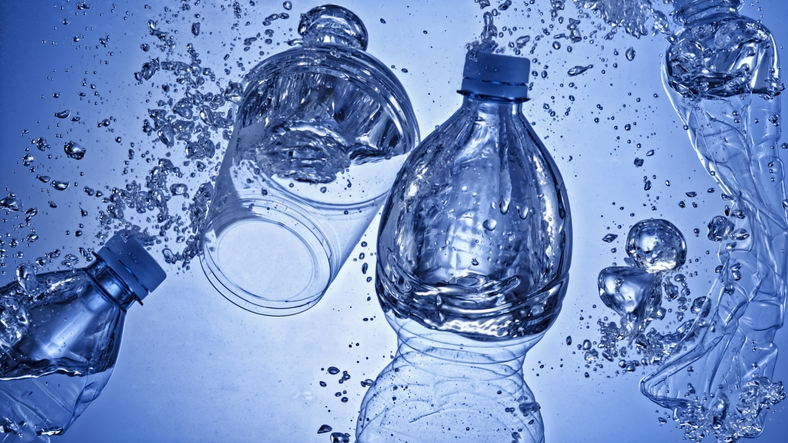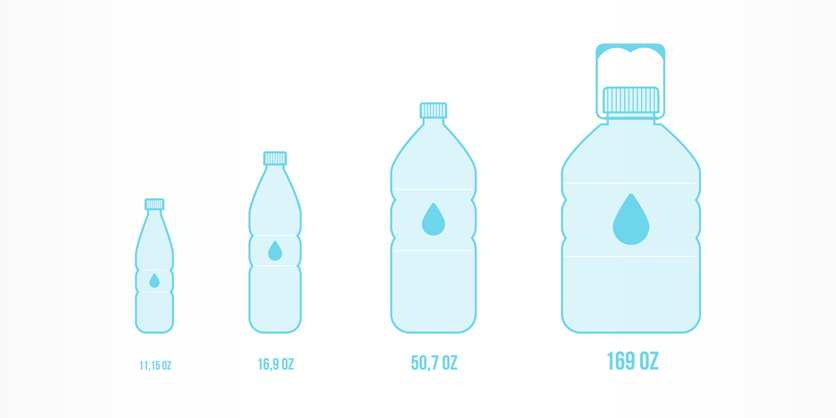Yes, You Can Overhydrate. Here’s What You Need to Know About Water Intoxication

By Joy Stephenson-Laws, JD, Founder
A young mother recently died of drinking too much water in too little time. I know this may sound odd and perhaps you believe that this could never happen to you or someone you love. But after learning the details of this tragic story, I realized that water intoxication is an issue we need to talk more about (especially because it is summer and people are being more diligent about hydration).
Thirty-five-year-old Ashley Summers was doing what so many Americans do on the Fourth of July holiday. She was enjoying herself with friends and family on a lake. According to a report from ABC News, her brother said that she started to feel “intensely dehydrated” and got a bad headache (which is a sign of dehydration). So, as many people would, Summers started drinking a lot of water.
This is me speculating, but my thinking is that Summers basically got distracted and forgot to hydrate while she was having a good time on the lake. This is not uncommon, especially if alcohol is involved and because it can take hours for a person to really feel the effects of dehydration. I think that once she got that splitting headache, the realization set in and she thought she had better make up for her lack of water intake before her condition got worse.
According to the report from ABC, Summers consumed the equivalent of four 16-ounce bottles of water in 20 minutes. That’s 64 ounces of water total. If you look at the photo below, this gives more of a visual on exactly how much water she drank in 20 minutes.

Yes, this was a lot of water to consume in just 20 minutes, however, to me it doesn't sound like an absurd amount to someone who was probably very thirsty. But things really took a turn for the worse. When Summers got home, she was dizzy and passed out in her garage. She died of water intoxication.
Essentially, water intoxication occurs when there is too much water in the bloostream and not enough electrolytes. Sodium, calcium and potassium are examples of minerals that are essential electrolytes that the body needs to function properly. I blogged about water intoxication years ago, but I definitely think it is a subject worth revisiting.
Too much water may dilute the electrolytes in the blood, especially sodium. Abnormally low sodium concentration in the blood is referred to as hyponatremia. Sodium helps regulate the amount of water that's in and around your cells. When sodium levels are low because of too much water, fluids may shift from outside the cells to the inside, causing them to swell. This swelling can cause many health problems, from mild to life-threatening.
As you can imagine, once your brain cells start to swell that’s when you have entered very dangerous territory. This could lead to seizures, brain damage, coma and even death, according to the National Institutes of Health (NIH).
Water intoxication is rare, however, as we can see from the story of Ashley Summers it is not impossible. Back in 2007, a 28-year-old woman died of water intoxication after participating in a water drinking contest. And in one incredibily awful and tragic story, an abused 11-year-old boy died of water intoxication from being forced to drink a lot a water by his parents. In 2014, a high school football player in Georgia died of water intoxication after drinking too much water during practice. So, yes, water intoxication is rare, but we clearly see incidents where it can and does occur.
How can we be proactive?My first suggestion would be don't wait. Do not wait to feel dehydrated and then try to play catch-up. If you are going to be participating in a sport or outdoor activity in the heat (even if it is just relaxing by the pool), make sure that you are adequately hydrated beforehand.
"The general recommendation is two liters of water per day, on average, per person, and that's throughout the day," said Dr. Stephanie Widmer, who was referenced in the story about Ashley Summers.
"But you also don't want to consume more than one liter [of water] per hour."
You can also keep track of the color of your urine. Very yellow to brownish-colored urine is an indicator of not being adequately hydrated. Clear urine tells you that you are more than adequately hydrated (perhaps even too hydrated).
"Your urine is a mix of water, electrolytes and waste that your kidneys filter out from your blood," reports the Cleveland Clinic.
"When you’re healthy and hydrated, your urine should fall somewhere between colorless and the color of light straw and honey...Clear urine sends a clear message: You may be drinking too much water."
It is also good to eat nutrient-rich foods such as fruits and vegetables that contain essential electrolytes such as sodium and potassium. Watermelon is a great source of water and potassium. Squeezing fresh lemon into water is also a great way to add electrolytes. I'm not really a fan of Gatorade and sports drinks (which have electrolytes added to them) due to the added sugars and processed ingredients, however, I am not opposed to keeping some handy for emergencies or when you know you will be outside on a boat all day (for example).
Remember, if you are already dehydrated I think it is important to not only drink water gradually but also get those electrolytes so that you get that balance in the bloodstream.
Stay hydrated this summer, and stay safe.
Enjoy your healthy life!
Disclaimer: This article is not intended to provide medical advice. Please consult with your doctor or another competent healthcare practitioner to get specific medical advice for your situation.
The pH professional health care team includes recognized experts from a variety of health care and related disciplines, including physicians, attorneys, nutritionists, nurses, and certified fitness instructors. This team also includes the members of the pH Medical Advisory Board, which constantly monitors all pH programs, products, and services. To learn more about the pH Medical Advisory Board, click here.







